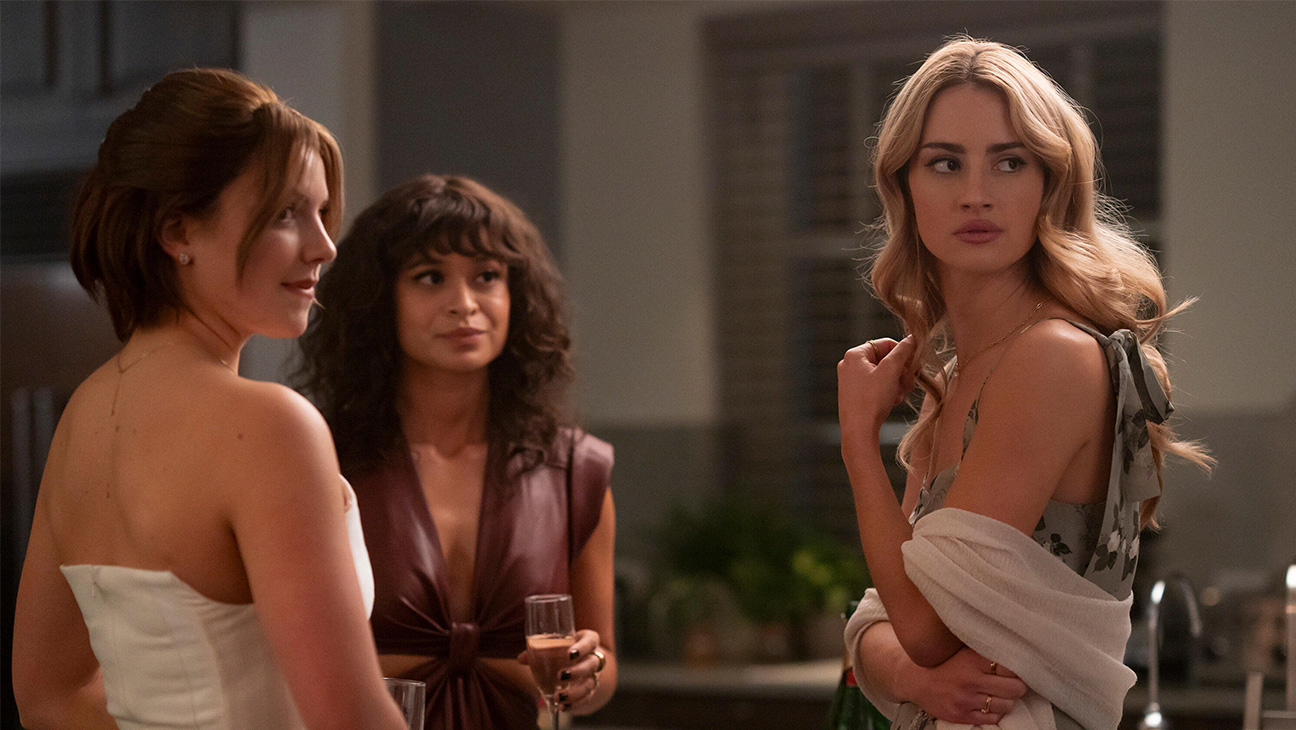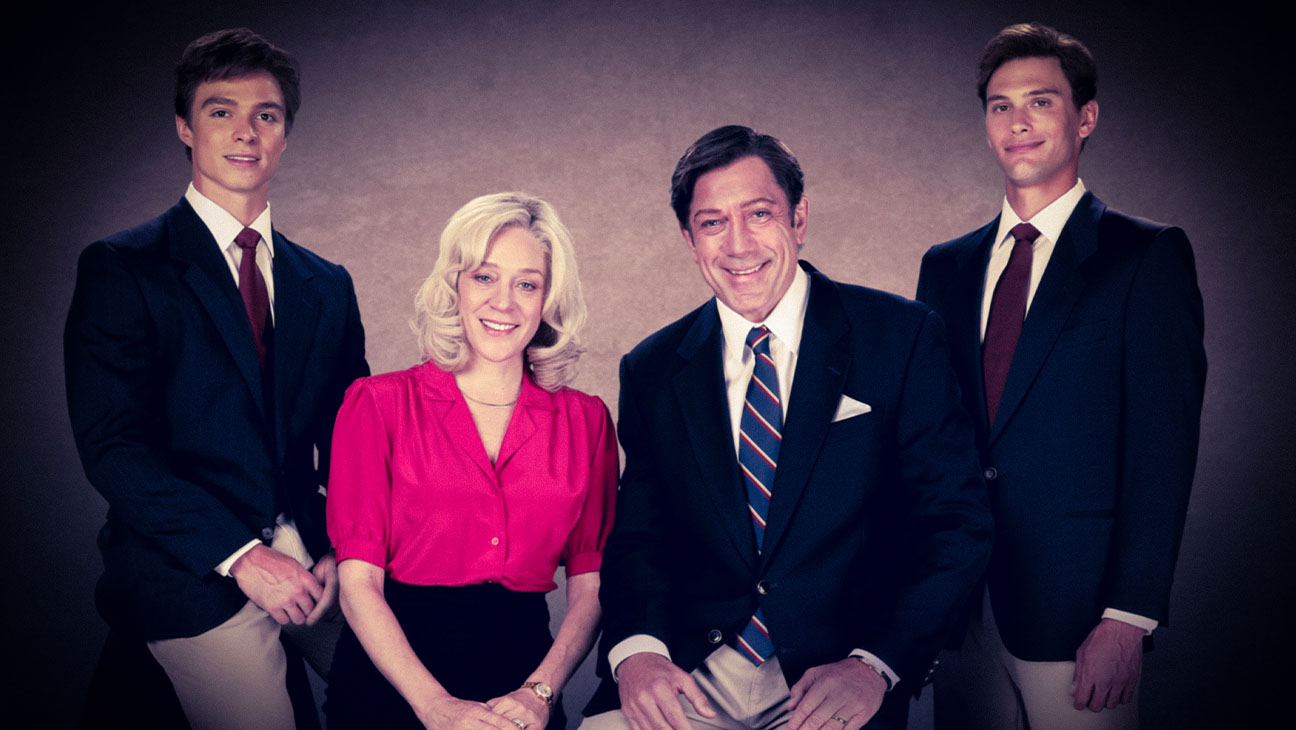Making history as the first Black woman to be nominated for an Emmy for outstanding directing in a drama series was the furthest thing from Salli Richardson-Whitfield’s mind the morning nominations were announced.
“Winning Time wasn’t even on my radar,” the first-time Emmy nominee admits.
Richardson-Whitfield’s manager had called to let her know that Gilded Age, on which she’s an executive producer and director, received a nom for outstanding drama series — a win that felt big enough for Richardson-Whitfield, who has never attended the Emmys. “I was like, ‘Great! I get to go to the party,’ ” she recalls. “Then he calls me up later and he’s like, ‘Salli, you got nominated!’ I was like, ‘For what?’ He says, ‘For Winning Time,’ and I can’t say what I was saying while I was in the middle of the set, but I was like, ‘Shut up! What the?’
“I had this moment where, literally, this relief came over my body, as strange as that may seem. I never cry. I don’t know if it’s [being from the] South Side of Chicago, I don’t know what’s wrong with me, but I started crying,” she adds. “I remembered what we accomplished on that show and how much I loved doing it and the hard work. I spent every weekend with my DP [Todd Banhazl], who was nominated, too, working on that basketball.”
Winning Time: The Rise of the Lakers Dynasty is equal parts drama and dexterity on the court in its retelling of the 1980s Los Angeles Lakers basketball teams, the behind-the-scenes dealings of owner Dr. Jerry Buss (John C. Reilly) and the ups and downs of the players’ personal lives. Richardson-Whitfield is nominated for season two’s sixth episode, “Beat L.A.,” which follows the Lakers’ disappointing loss in the 1983 NBA Finals after winning the championship in ’82 and leads to the much-anticipated matchup against the Boston Celtics — specifically, Magic Johnson (Quincy Isaiah) and Larry Bird (Sean Patrick Small) — in 1984’s Finals.
Part of nailing the episode involved watching footage of the original games, both to reenact specific plays and to ensure that the technical aspects of the sport were accurate for the time. “A lot of it is to remind yourself what kind of basketball they played back then, because it’s not the kind of basketball we do now,” Richardson-Whitfield explains. “I would know as a director if someone was doing a dunk that was too modern. People start doing too much and high-fiving, I’m like, ‘Listen, nobody was high-fiving back then.’ ”
The commanding tone RichardsonWhitfield uses in her example is the same one she brought to set. “I’m a coach out there. Those guys will tell you, ‘Boss lady here is not quiet.’ I’m going to be on that court in your face like a coach going, ‘Your defense looks like crap’ — that may not be the word I was using. (Laughs.) ‘And you guys on the bench, you should be yelling.’ ‘And you’re over here. Get your butt up.’ They’d be like, ‘OK, coach.’ It took high energy to do that.
That momentum translates onto the screen, with the basketball sequences giving viewers the feeling of watching a live game. The show’s TV news footage, replicated through the use of vintage cameras, mimics a postgame show. “I like keeping the camera moving,” says the director. “I like to feel like we are on a roller coaster. So I direct the scenes that way.
“Also, as a filmmaker, I really focus on transitions between scenes. A lot of times people may not notice it, but it’s the reason why the episode feels like it’s moving and it’s smooth, because from scene to scene, everything has been planned out; it has a flow.”
After two seasons, HBO canceled Winning Time in September. The five Emmy noms the sports drama received this year are affirming, Richardson-Whitfield says. “Sometimes you have a great show at the wrong time. I think what this is proving is that people are going to look back and go, ‘That was a once-in a lifetime kind of show,’ and start appreciating it more and more now that it’s gone.”
As a talent who first made a name for herself as an actress in the early ’90s (A Low Down Dirty Shame, The Great White Hype), being nominated as a director feels personally affirming for Richardson-Whitfield as well.
“If you had asked me 15 years ago, my dream still would have been to stand up there for my acting Emmy, so to have made such a drastic turn in my life, it validates that I made the right decision,” she says. “You may think you know the plan for your life, but there’s a higher being out there. God knows what the real plan is. I always say, if I had been bigger as an actress, then I wouldn’t have started directing. That doesn’t mean I won’t act again one day, but my path is to be a director, and I think I’m pretty good at it.”
This story first appeared in an August stand-alone issue of The Hollywood Reporter magazine. To receive the magazine, click here to subscribe.



